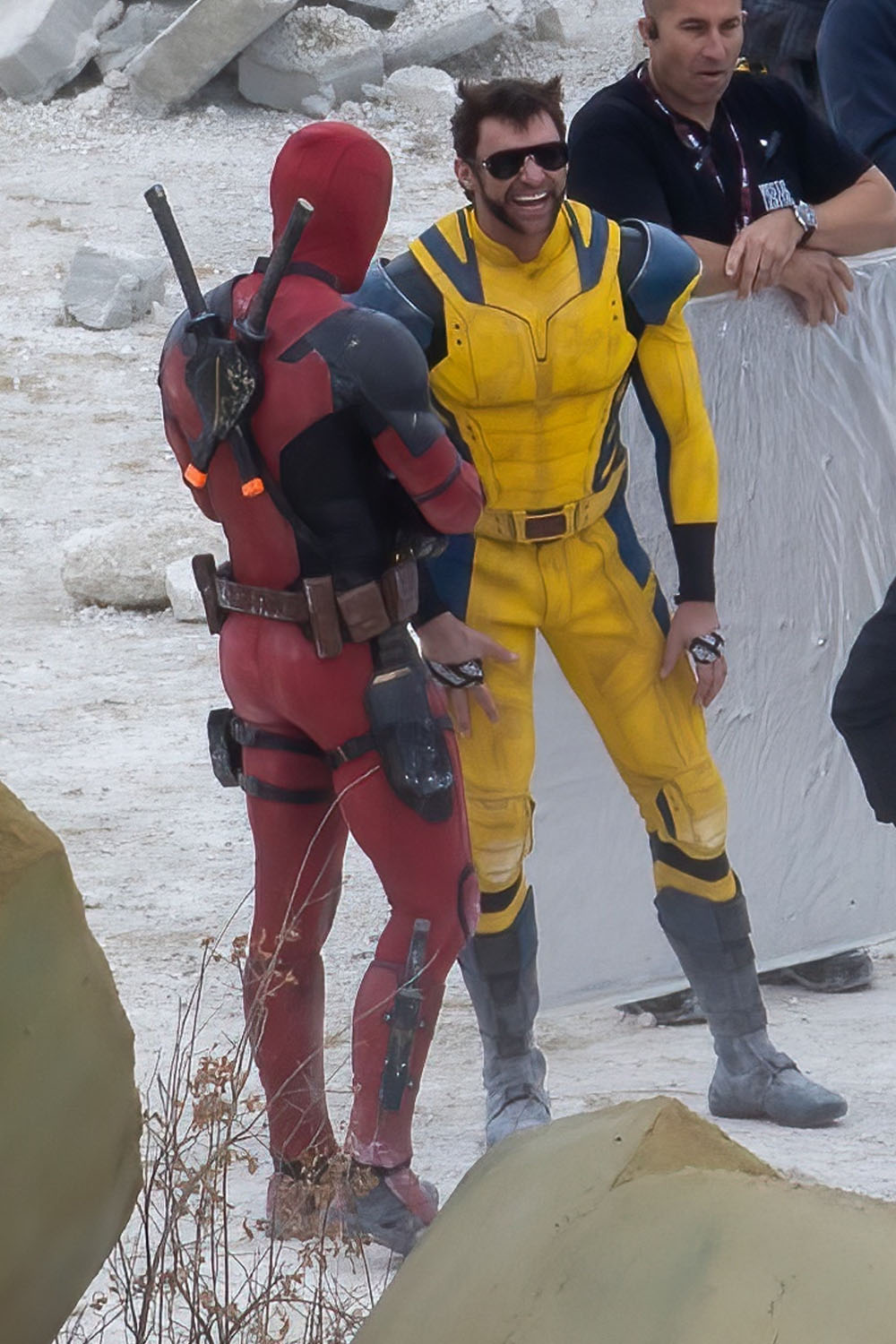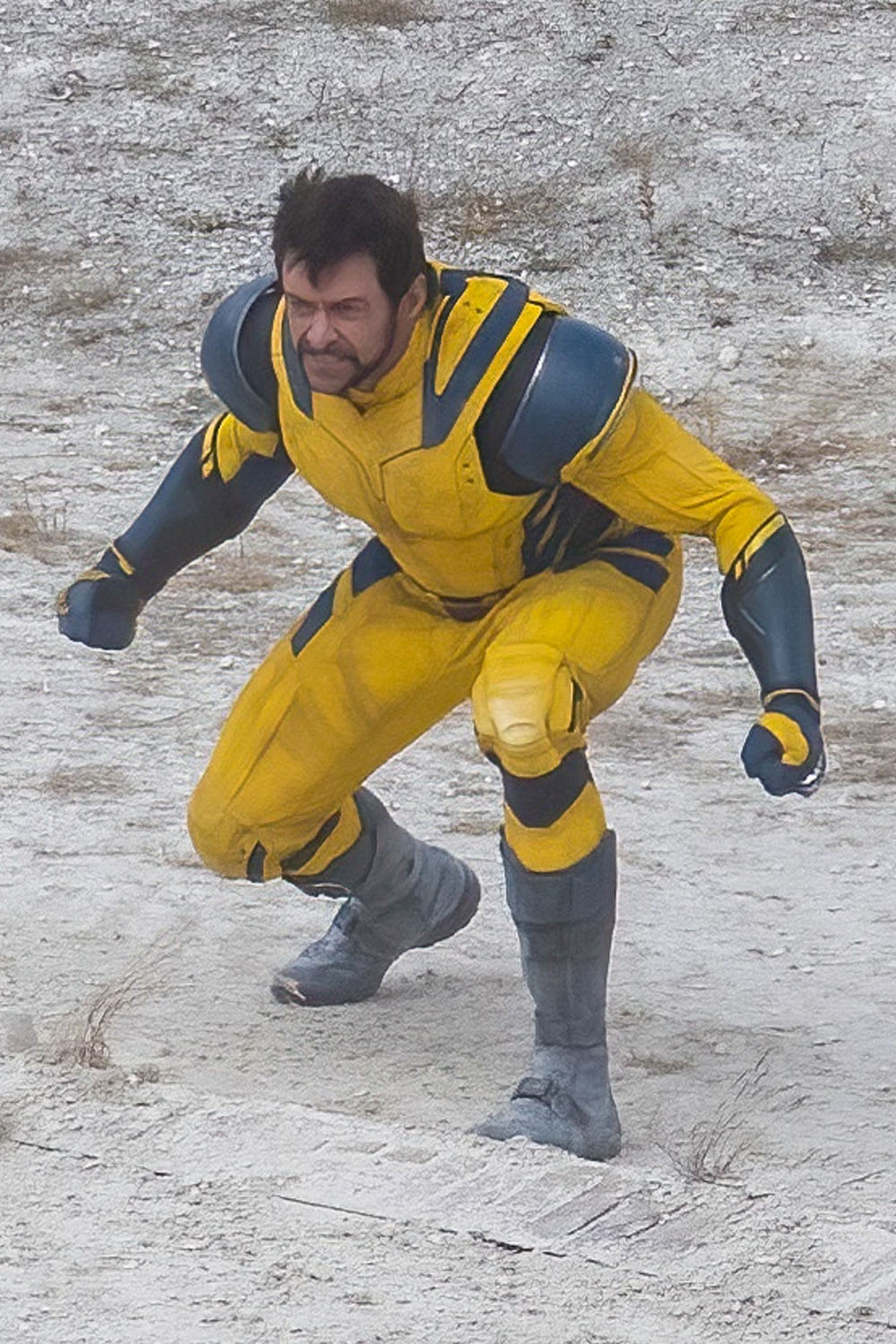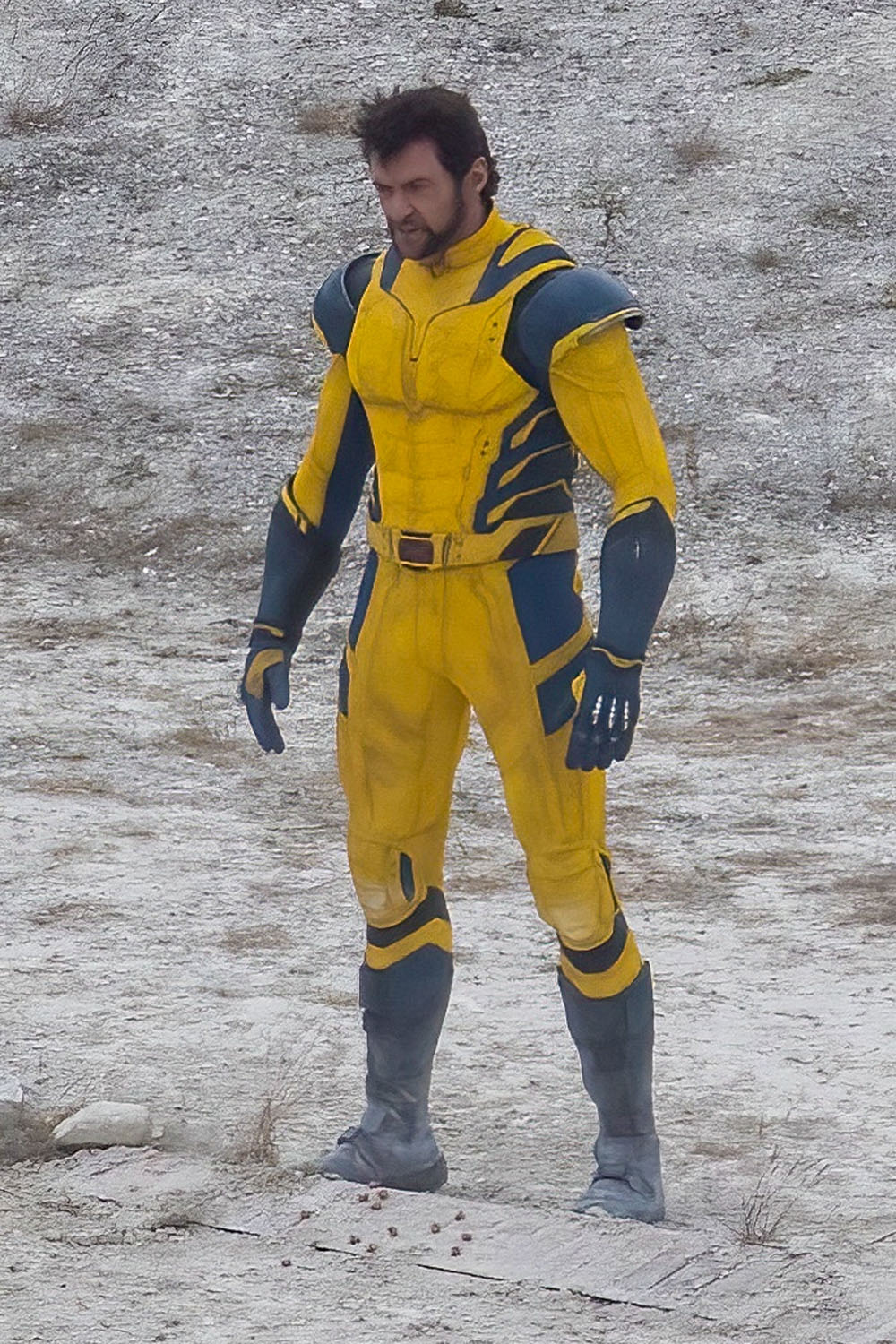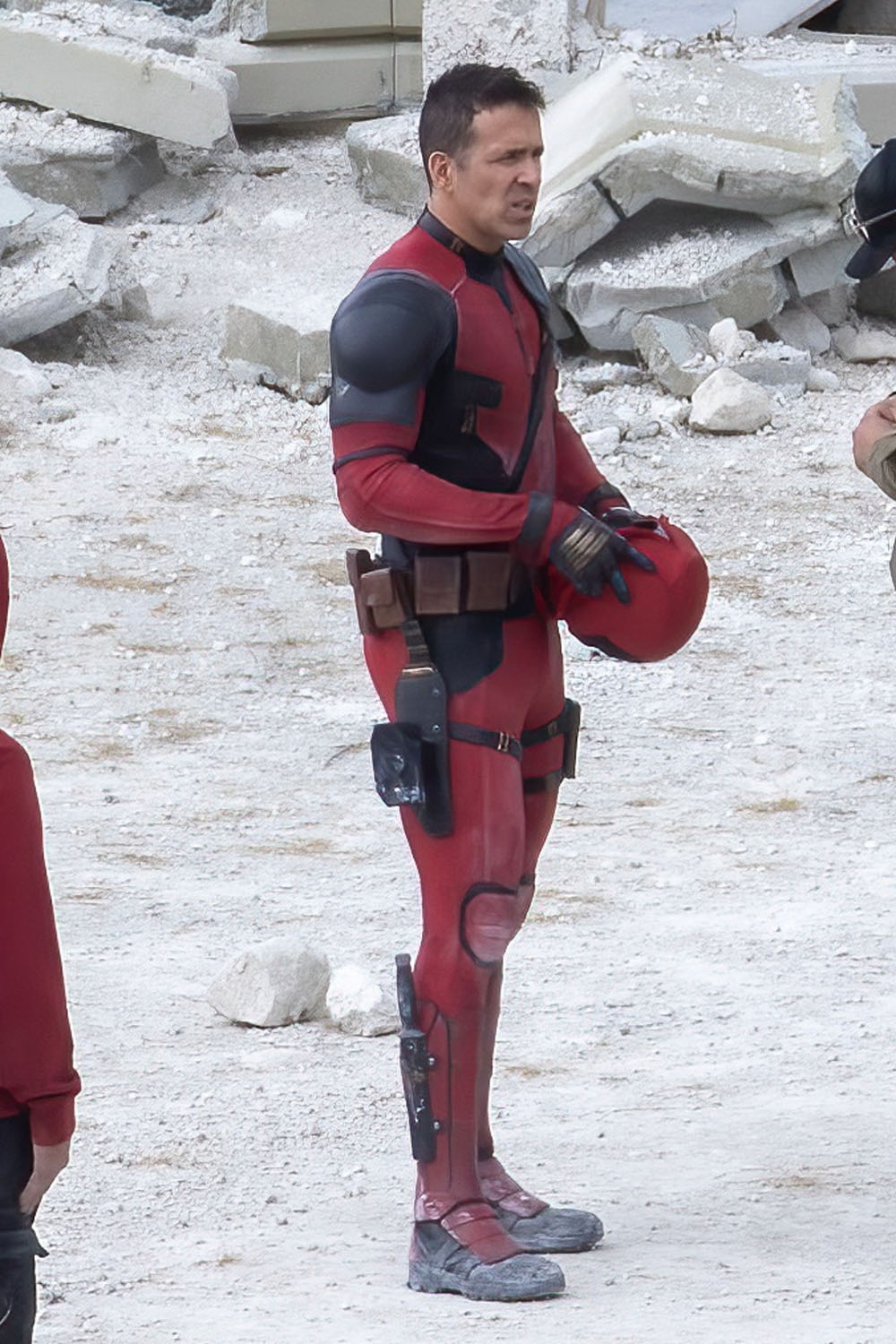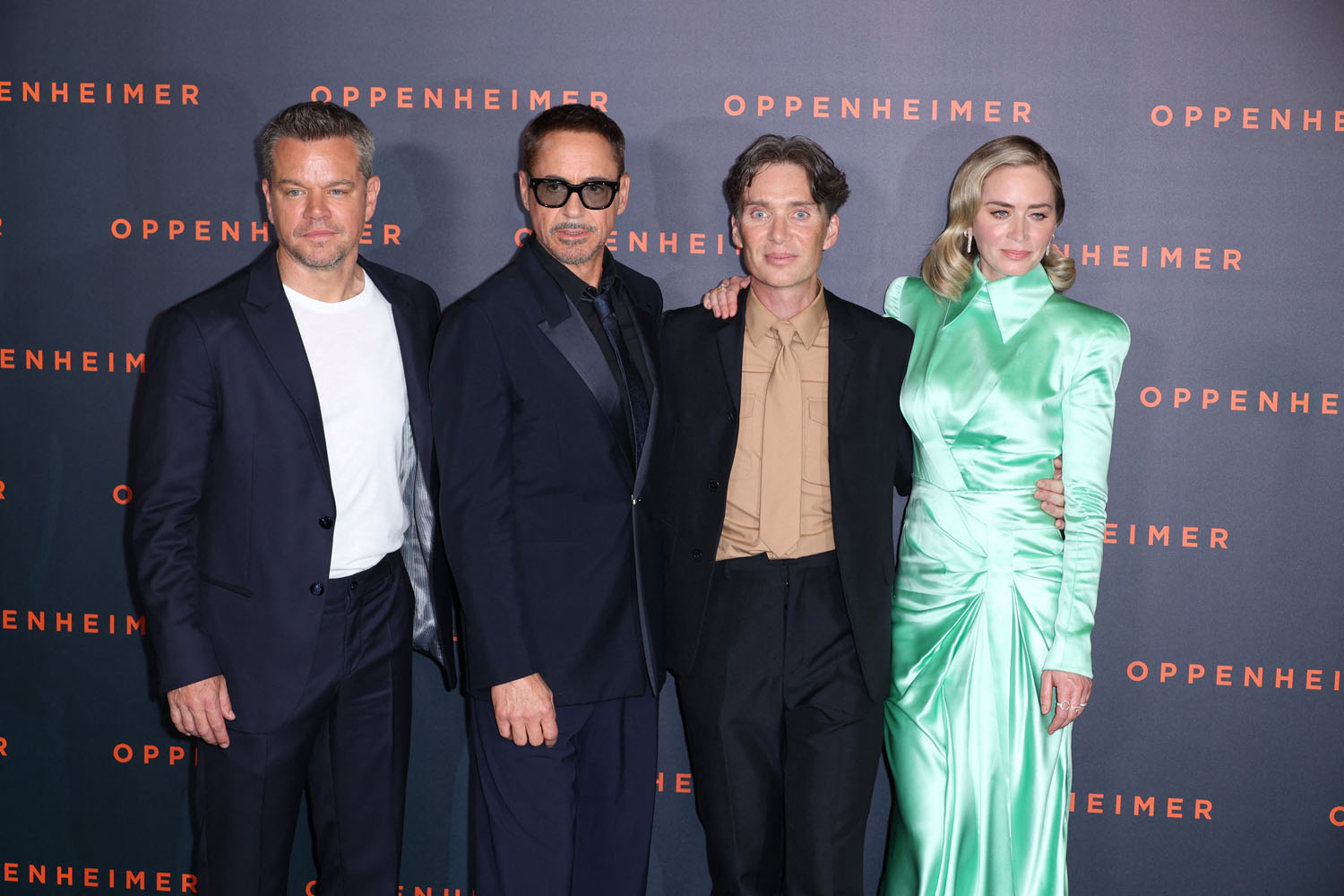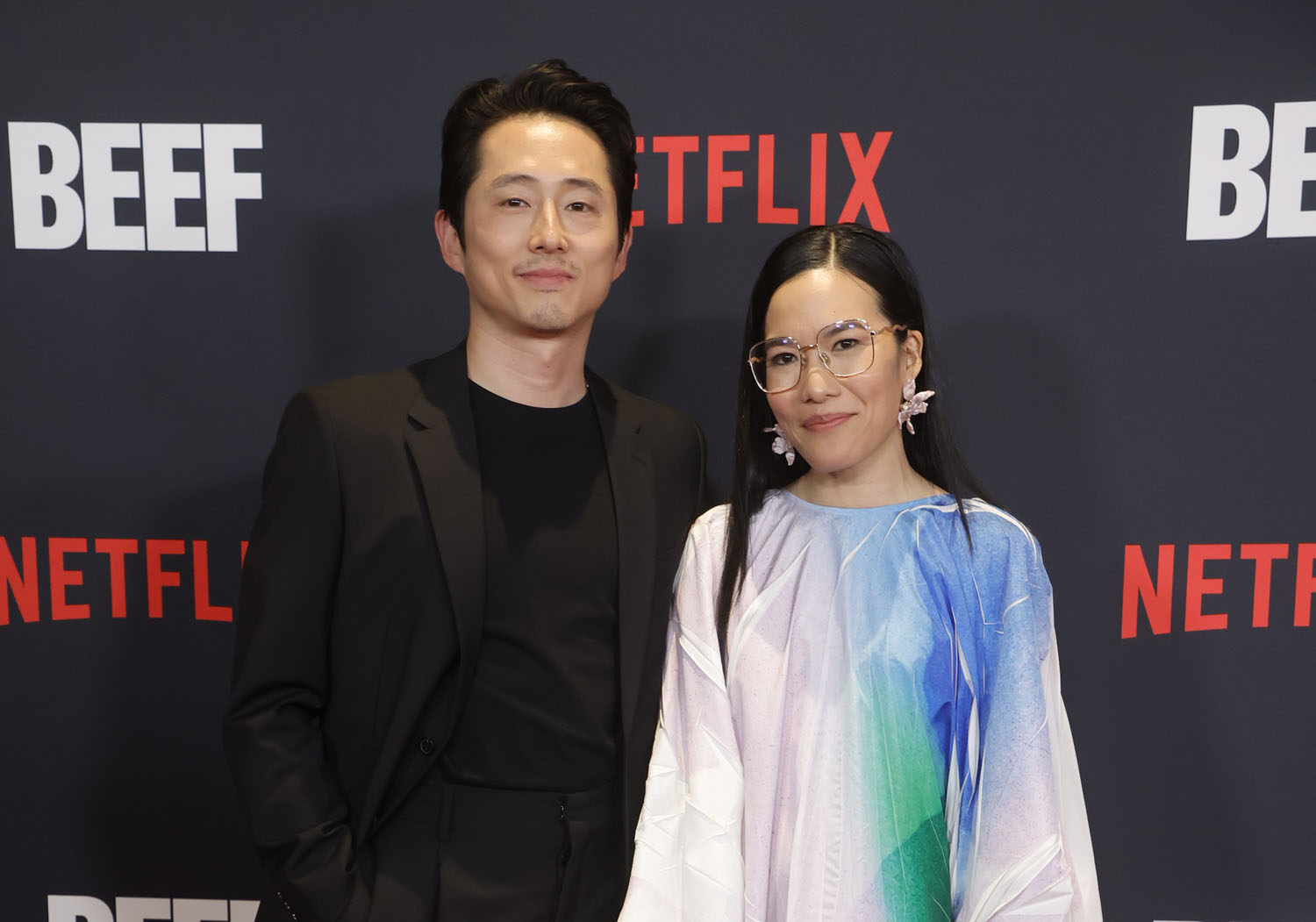Deadpool-Wolverine do-over


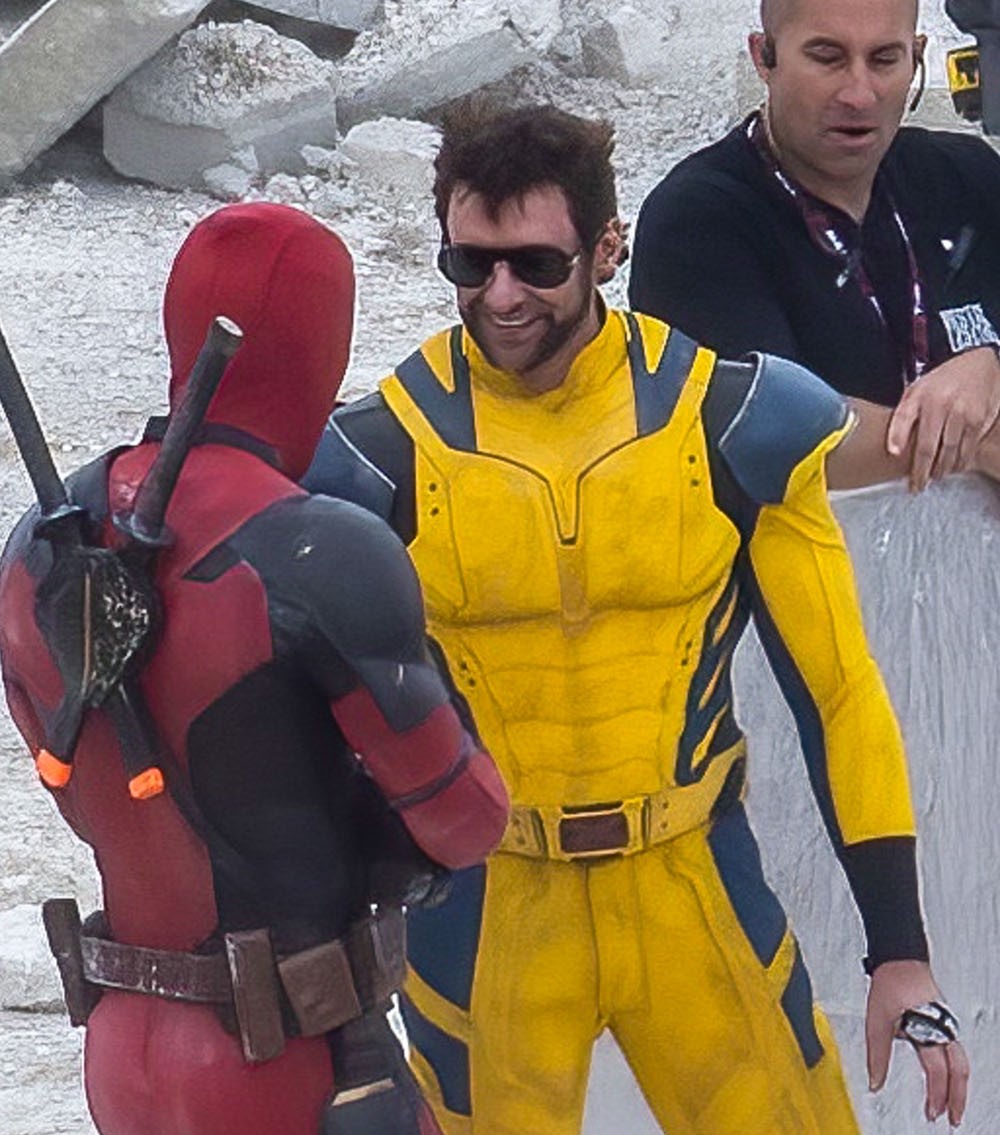
Despite the ongoing WGA strike and Ryan Reynolds being a member of the WGA who is, technically, on strike, Deadpool 3 production continues in London. Here are Ryan Reynolds* and Hugh Jackman shooting a fight scene yesterday as Deadpool and Wolverine, reuniting the characters following the disastrous 2009 film X-Men Origins: Wolverine, a movie so terrible it nearly tanked Deadpool as a viable cinematic protagonist. Undoubtedly, they’re trying to get as much footage as possible in the can before the looming SAG-AFTRA strike deadline at midnight tonight.
*The photo agency identified this man as Ryan Reynolds, but this just does not look like Ryan Reynolds to me. Maybe I have developed a hyper-specific case of face blindness, or else this is a stunt double. The Daily Mail thinks it's a stunt double, and so do I.
Unlike the case of Jennifer Garner returning as Elektra, we’ve known for a while that Jackman would come back as Wolverine, despite Logan killing him off and, more importantly, providing a satisfactory conclusion to that character’s story. Though, given that Jackman is wearing a yellow and blue costume clearly based on Wolverine’s animated look from the 1990s—also one of his most iconic costumes from the comics—this is probably an alternate dimension version of Wolverine, and not the same guy who died in Logan. Word is, Deadpool 3 is a multiverse story, in case you weren’t already sick of those (they’re probably counting on Deadpool’s satiric tone to differentiate it from all the other multiverses, we’ll see how that works out for them).
The question is, though, what happens if the actors strike. Unlike the WGA strike, Reynolds won’t be able to work through it without people taking scabbing seriously. An actors’ strike will be a complete work stoppage of any production involving SAG-AFTRA actors. It would be a massive shutdown with real potential to cripple the industry, especially coming on the heels of the pandemic disruption, which Hollywood is only just now and only just barely recovering from.
Which is to say, the pressure is on the Alliance of Motion Picture and Television Producers to deal fairly with the workers who actually make the films and television series they release, it’s not on the actors—or the writers—to not strike. The clock is ticking.

